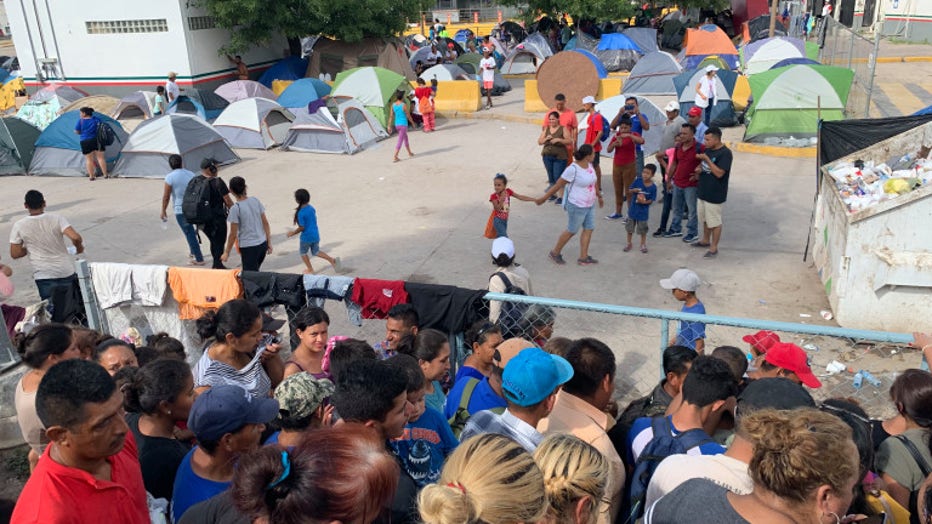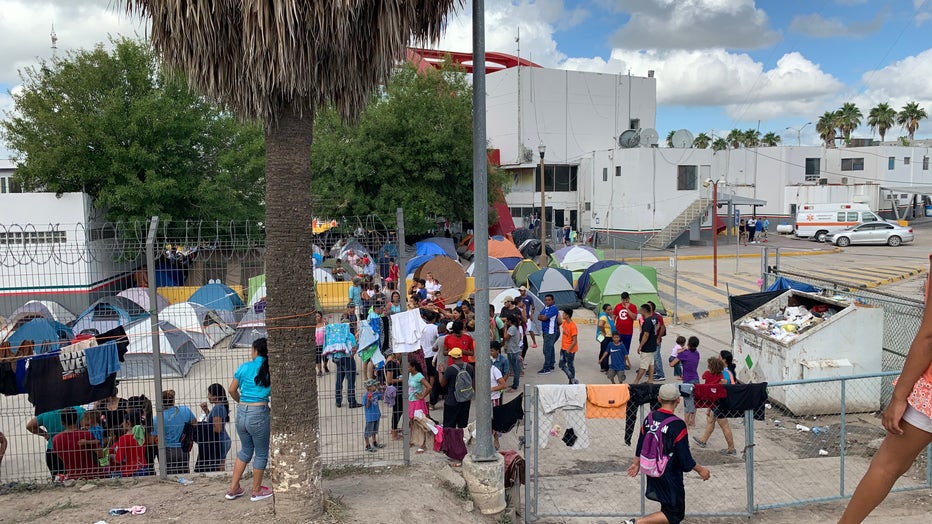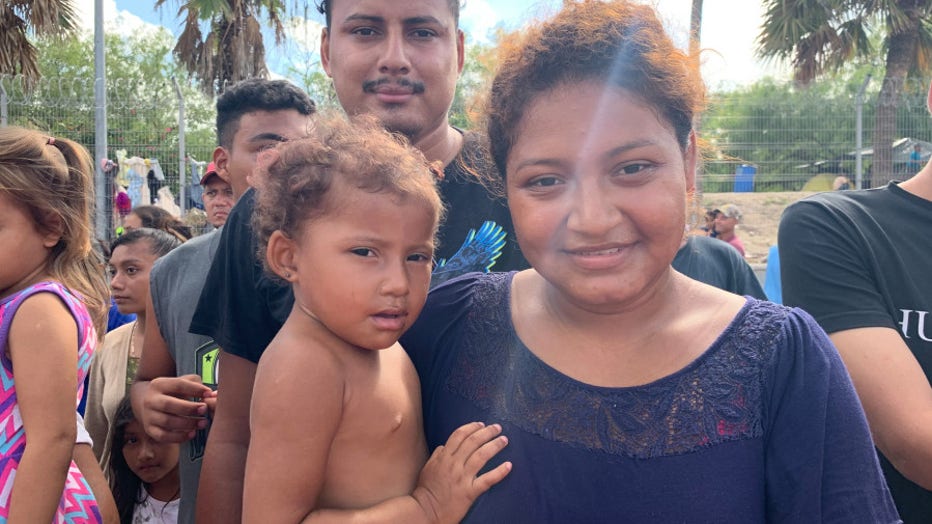Migrant Protection Protocols ‘a disaster,’ Democratic presidential candidate says
MATAMOROS, MEXICO (Border Report) — Julian Castro on Monday, Oct. 7 viewed first-hand a tent encampment where 1,000 migrants are living on the streets and in a muddy embankment at the base of the Gateway International Bridge across from Brownsville, Texas.
After an hourlong tour, the Democratic presidential candidate declared President Donald Trump's administration's policy that is making migrants wait in Mexico to claim asylum “is a disaster” and has resulted “in people living in squalor.”

Hundreds ofasylum-seekers are living in tents on the streets and in a muddy embankment at the base of the Gateway International Bridge across from Brownsville, Texas. (Sandra Sanchez/BorderReport)
Castro, who was secretary of Housing and Urban Development under President Barack Obama, is the first presidential candidate to visit the tent encampment in Matamoros, Mexico, where migrants are sent via the Migrant Protection Protocols (MPP), his campaign said. It is believed that Castro is the first presidential candidate in the 2020 race to visit any such tent encampment along the Southwest border, although his campaign staff could not verify that.
“What I saw today is this president has helped to create a humanitarian crisis,” Castro said. “Many are sick. Many don’t have enough to eat. They said they can’t get potable water oftentimes. All that they want is to make their asylum claims with due process and remain in the United States. This policy is a disaster not only because it’s creating a greater humanitarian crisis, but it’s a disaster because it flies in the face of the tradition of the United States allowing people seeking asylum to make that claim and to remain in the safety of the United States, instead of having to be in places like Matamoros and Nuevo Laredo, and other places along the border.”
This past year, U.S. Customs and Border Protection began implementing MPP along the Southwest border, beginning in San Diego, California, then El Paso.
The program was started in South Texas on July 17. After that date, most all asylum-seekers from the counties of Starr, Hidalgo, Cameron, and Willacy are being driven to the base of the Gateway International Bridge by U.S. authorities, and then are being forced to walk over the bridge where they are told to wait in Mexico until their asylum court hearings.
As a result, a filthy tent encampment has sprung up at the base of the bridge, where Castro on Monday said there are now 1,000 men, women, and children living — most of whom are from the Northern Triangle countries of Guatemala, Honduras, and El Salvador. The numbers at the tent encampment had hovered around 400 people throughout the summer, but recently the numbers have spiked.
Read a previous Border Report story on MPP and the Matamoros tent encampment.
Read more on MPP rules and stipulations here.

The tent encampment where 1,000 people are living in Matamoros has a few palm trees, like this, which migrants say at night thousands of cockroaches come down from and cover the ground. (Border Report/Sandra Sanchez).
“You know how it is: 'It is wait and see,'” said Karla Vargas, a lawyer with Texas Civil Rights Project.
Meanwhile, those not selected by Castro remained living in an atmosphere filled with sick and crying children, adults wearing clothes that have holes and are see-through from so many hours in the sun.
Those who live there say that children are snatched from tents at night and women are forced to work as prostitutes overnight and then returned in the morning.

Carolina Caranza, 21, of Honduras, and her 2-year-old daughter, Emmy. (Sandra Sanchez/Border Report)
Migrants say the palm trees that provide a bit of shade during the day are teeming with cockroaches that descend upon them at night and turn the streets black with their bodies. Others say tiny fleas bite at their skin and get into their eyelashes and prevent them from sleeping.
Food and water are scarce and the asylum-seekers are dependent upon the generosity of volunteers who come daily bringing meals and some supplies.
Jodi Goodwin, an immigration lawyer, visits the encampment often and was on hand Monday to meet Castro. She walked with him over the bridge as he attempted to present the 13 migrants. On the walk up the hill, Goodwin briefed Castro on the legal words and points and ways he should petition for these individuals.

